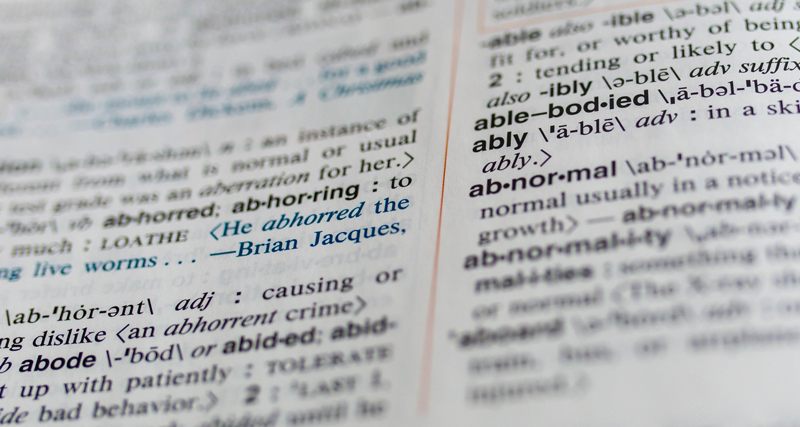Teaching Children to Use a Dictionary
When children begin to learn essential skills at school whether they are curriculum-based skills or extra-curricular ones, it shapes them into bright individuals. Reading, writing, conversing, public speaking, debates, art and craft, sport, performing arts are some of the vital activities that nurture them so that they can have well-rounded personalities. Of course, this is just the beginning and there are infinite possibilities ahead of them to be achieved. One such important skill to attain in early education is to know how to use a dictionary.
The basic function, why a person would use a dictionary, is to look up the meaning of a word. Words in a dictionary are arranged alphabetically, so as for them to be found easily by the user scavenging for the meaning of a word. The moment someone finds any word in a dictionary, it will show its meaning, they can check the spelling, see its pronunciation, and the dictionary mentions the part of speech for the word. Moreover, it will show another part of speech related to the searched word. E.g., Resolve – is a verb, which means to make up one’s mind. The noun for the same word would be resolution and the adjective for it would be resolved.
Dictionaries are available in many languages. There are several dictionaries that help translate a word into another language. They also explain the origin of certain words. A dictionary helps to understand synonyms and antonyms of words, which have similar and opposite meanings respectively. There are picture dictionaries as well for little children and those are very illustrative with attractive pictures to help children understand the meaning of several things. In a game of Scrabble, which is an excellent word game to build up one’s vocabulary, a dictionary comes in handy when there is a common argument related to the spelling of a word which people would get confused with and the dictionary solves all the queries and the players can enjoy and play an error free game.
So, as we have seen, there are tremendous benefits a dictionary can offer and when a child understands the alphabetical order and the pattern of how to use a dictionary and find a word, they will gradually become a pro at it and it will become the best tool for them to improve their language, grammar, pronunciation, strengthen their vocabulary, enhance their writing skills and they will be able to speak confidently and carry themselves in great spirit with positive and smart body language, as it boosts their morale as well as their mental health. Having a strong command over any language, will not only help them in school but outside as well and will empower them in future competitive exams.
These are great assets for a child to have and they need to constantly keep working on themselves with amazing parents and teachers by their side for them to prosper in life. English is used worldwide and is the most spoken language and they must definitely master it but on the other hand it is also crucial to sharpen one’s regional or second languages. If you are one to be staying in Dubai or in another Emirate of the UAE, or in any Middle East or a GCC country, then we would urge the parent to polish the child in the local languages like Arabic and many more, where one resides. Here these non-English dictionaries will help a lot with such languages and to get a grip over them. There are English to other language convertible dictionaries and vice versa available to help the user translate the words and help themselves.
Apart from knowing English and local languages, it is imperative and supremely helpful to learn other foreign languages as well like French, German or Spanish for example that when the child gets to study abroad, it would really help them and even on a regular holiday to a foreign location, a dictionary comes in handy at all times. Not only should the adults but the children must carry them in their pockets or backpacks. Today with the internet and online search engines like Google, our gen-next children are very intelligent and they would easily find the meaning of a word online but what a traditional dictionary can do and is capable of is beyond imagination. It is essential to learn the crux the hard way around and then you will see your child rise and shine. Prep your children to use dictionaries more often, play games with them, do fun word searches and interesting activities that will excite them and they will use them.
“Reading Eggs” makes learning to read interesting and engaging for kids, with great online reading games and activities. And it really works! Children truly love the games, songs, golden eggs, and other rewards which, along with feeling proud of their reading, really motivate children to keep exploring and learning.







Recent Comments